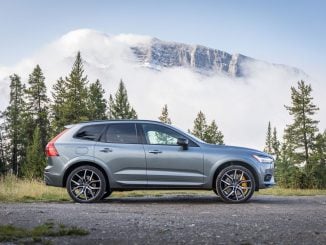
BOSTON — For seven years, I lived in a small tourist town in Southwest Colorado. Thanks to nearby Mesa Verde National Park and the Durango & Silverton Narrow Gauge Railroad, not to mention mind-bogglingly beautiful scenery, we had a constant flow of Texans and Californians wanting to see “The West.”
For a remote town of some 20,000 people, Durango, CO was remarkably well-stocked with amazing restaurants. Thanks to our tourist friends as well as a well-heeled second-home community, Main Street was lined with top-notch eateries that wouldn’t be out of place in any major city across the country.
Whether we wanted sushi, steak, greek, whatever — we were absurdly spoiled for choice. It was heaven. Though I live in Boston now, which saw its own culinary resurgence in the half-decade I was away, I still miss the restaurants of Durango.
My favorite was always East By Southwest. You wouldn’t expect a sushi joint in the middle Rockies to blow you away, but the chefs were creative and I was always delighted with whatever they came up with. My favorite was the BLT&T roll, which swaps seaweed for lettuce and adds tuna to the lunchtime staple. Topped with a garlic pesto aioli and I could eat it every day for lunch.
 As I slipped behind the wheel of Mazda’s three-row CX-9 SUV, I found myself thinking about all those restaurants. See, the Mazda CX-9 is a very nice premium three-row SUV. My test unit, a top-of-the-line Signature trim, was $47,385 with all the toys.
As I slipped behind the wheel of Mazda’s three-row CX-9 SUV, I found myself thinking about all those restaurants. See, the Mazda CX-9 is a very nice premium three-row SUV. My test unit, a top-of-the-line Signature trim, was $47,385 with all the toys.
It has Mazda’s excellent 2.5-liter turbocharged Skyactiv engine, all-wheel-drive, 20-inch wheels, a full safety suite including adaptive cruise control, a lovely Bose sound system, nice leather, and on and on.
There’s a five-year 60,000-mile powertrain warranty and a three-year 36,000-mile bumper-to-bumper. It has three-zone climate control (the rear seats are the third-zone). It seems well-built, assembled in Mazda’s Hiroshima, Japan plant and shipped over to the states.
I particularly like the heads-up display and the easy-to-read dashboard, which is common to all Mazdas. Too many carmakers end up filling every available inch with icons and graphics that you just don’t need. The infotainment is not the best (I’ve complained about Mazda’s user interface before so I won’t belabor the point), but the screen is solid and CarPlay works well.
Visibility is good and the handling and drive performance are excellent, with the little turbocharged four-cylinder delivering 20/26/23mpg city/highway/combined. The inside is luxurious and all the buttons and touchpoints are lovely. However.
Like with all those amazing restaurants in Durango, we are spoiled for choice in this segment. The Hyundai Palisade (which I reviewed here last year) is tremendous, as is its sister-vehicle the Kia Telluride, and at the top-trim you’re at the same price point as this Mazda. There’s the Honda Pilot, the Ford Explorer, the Subaru Ascent and the Volkswagen Atlas.

If you don’t really need the third-row, you’re starting to get into the price range of the smaller luxury SUVs as well. But it’s the Palisade that really gives the Mazda a run for its money. Of course, the Hyundai is brand new and any new vehicle is going to have an advantage in tech features, but it also looks better (Hyundai is killing it in design these days), has quilted leather and heated and ventilated rear seats in the Limited trim, as well as a far better warranty, running 10-years or 100,000 miles on the powertrain.
And the Hyundai’s lane-centering functionality is so far beyond what most other vehicles have that, for commuters especially, it’s hard to recommend anything else.
Viewed in a bubble, the Mazda CX-9 is great. As a vehicle, it’s comfortable and luxurious and you’d be perfectly happy owning it. But when you look at the competition, it’s a much tougher comparison.



